Whether you’re applying to Waterloo Engineering or simply interested in learning about the program, this guide is for you.
As a potential Waterloo Engineering applicant, you’re probably overwhelmed by the amount of information out there.
That’s why we created this guide. We’ll break down everything you need to know about the application, deadlines, tuition, program, comparisons with other business schools, and more — all in ONE place.
By the way, if you’re serious about getting into Waterloo, our 1-on-1 Youth Coaching services will help you become a stronger applicant, student, and leader. We work on things like improving real-world skills, building self-awareness, and achieving big goals, so you can maximize your post-secondary potential.
Looking for specific guidance on the Waterloo AIF and interview? Visit our Waterloo Engineering App Prep Guide (it’s free… and pretty awesome) and check out this video one of our Youth Coaches created to help students just like you:
Table of Contents
- The Application: AIF; Essays; Deadlines; Video interview questions; and More.
- The Admissions Process: Acceptance rate; Early enrollment; Chances of admission; and More.
- Program Majors: Program breakdowns; Comparisons; and More.
- About the Program: Tuition; Co-op; Rankings; Exchange program; and More.
- Engineering School Comparisons: Waterloo Engineering vs. U of T Engineering; Waterloo Engineering vs. McMaster Engineering; and More.
The Waterloo Engineering Application
This section provides a general overview of the application process and covers answers to the most popular questions we receive about the Waterloo Engineering application and video interview.
If you have any questions about application strategies, essay tips, past video interview questions, and more about getting admitted, connect with a Youth Coach.
Waterloo Engineering Evaluation & Scoring
Waterloo evaluates students based on 4 core components of the Waterloo Engineering application (keep reading for a full breakdown of each component).
These 4 evaluation components are:
- Admission Average
- Adjustment Factor
- Admission Information Form (AIF)
- Video Interview
Waterloo gives each applicant a score for each of these these components.
The final admission score is calculated by adding up these 4 scores, as seen below:
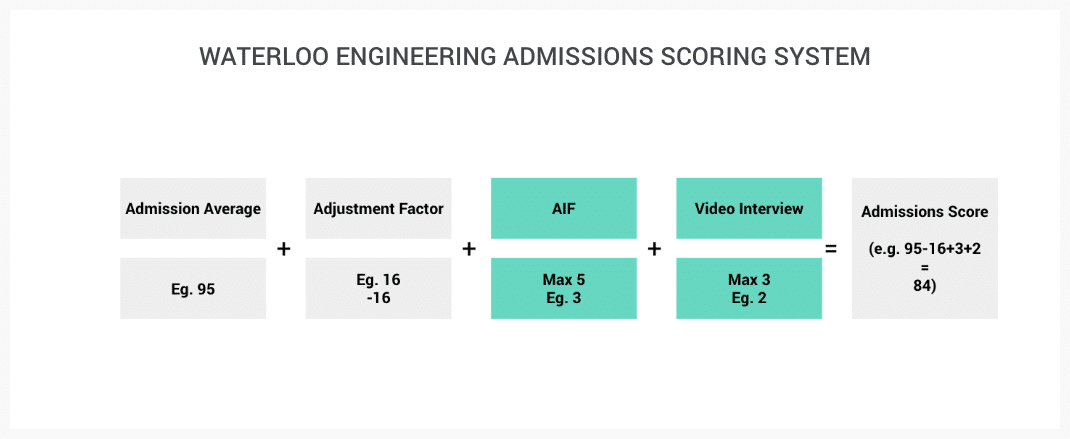
Waterloo Engineering Admissions Information Form (AIF)
The Waterloo Engineering Admissions Information Form (AIF) is a required online form where you’ll fill out short questions to tell the admission committee a bit more about you.
This document is required for all engineering applicants, including architecture.
The 2022/2023 Waterloo AIF (i.e. for students starting the program in Fall 2023) is due on February 17, 2023. For other important application dates, click here.
The Waterloo Engineering AIF contains four main components (keep reading for a breakdown of each part):
- Part 1: About You: Part A
- Part 2: About You: Part B
- Part 3: Courses Completed
- Part 4: Engineering Essays
Note that the AIF is different than the video interview, which we’ll discuss below.
COACH’S TIP: In your AIF, focus on quality, not quantity. Be clear and concise and take the time to think about compelling and unique answers as you showcase your skills, experiences, interests, and goals. Not sure how to do that? Connect with a coach for support and check out our Waterloo Engineering Application Prep Guide for a full breakdown of the Waterloo Engineering AIF as well as templates and examples for each section. We’ve also got a ton of useful videos about the AIF on our YouTube channel (don’t forget to subscribe for the latest videos!).
AIF SECTION 1: About You – Part A
In this section, describe why you’re interested in the program at Waterloo, as well as detail extracurricular and employment activities.
Here are the questions for this section of the Waterloo AIF:
- Question 1: Reasons for choosing your program and Waterloo (required essay). In 900 characters or fewer, you’ll describe specific reasons the program is a good fit for you. Are there certain courses, faculty members, or resources that are appealing?
- Question 2: Extracurricular Activities (required list). Here, you’ll list and categorize your wide-range of extracurriculars. Activity types can include: athletics, clubs, community work, hobbies, leadership, volunteering, etc.
- Question 3: Extracurricular Activities – Additional Information (optional, but recommended essay). You’ll describe additional details about key extracurriculars. You want to show the admission committee the extent of your knowledge and passion.
- Question 4: Employment (required list). Here, you’ll list and briefly describe your past employment. Be as specific as possible in your descriptions and try to show how your employment built relevant knowledge and/or key leadership skills.
- Question 5: Special Achievements, Distinctions, and Awards (required list). You’ll list academic and non-academic awards. You should briefly describe the nature of the award to show how selective, important, and noteworthy the award is.
Don’t forget to check out our free essay examples and templates in our Waterloo Engineering App Prep Guide.
AIF SECTION 2: About You – Part B
In this section, describe your prior education, as well as have the opportunity to discuss any relevant outside circumstances or additional personal information.
Here are the questions:
- Question 1: Circumstances (optional essay). You have the option to write about any outside circumstance(s) that may have negatively impacted your academic performance.
- Question 2: Institution(s) Attended (required list): Include the school you currently attend and any others you attended.
- Question 3: Post Secondary Education (optional list): If you have done any post secondary education, include that information here.
- Question 4: Additional Information (optional essay). A broad optional essay where you can explain any additional extenuating circumstances in a way that will help the admission committees see you as a strong candidate.
Check out our free essay examples and templates in our Waterloo Engineering App Prep Guide.
AIF SECTION 3: Courses
In this section, list the coursework you’ve completed in school, as well as additional outside courses.
Here are the questions:
- Question 1: Current 2021/2022 Courses (required list). Here, you’ll simply list all courses you have taken during the current academic year.
- Question 2: Courses Prior to Fall 2021 (optional list). Include all courses you’ve taken in Grades 9-11.
- Question 3: Additional Courses Information (optional essay). If you have taken any courses outside of high school that are relevant to the field you’re applying in, describe these courses here.
- Question 4: Courses not taken at your regular day school (optional essay). If you took any night school, summer school, etc., you should briefly explain those courses here and why you chose to take these courses when you did.
- Question 5: Repeated Courses (optional essay). If you repeated any courses in high school, you have to explain why you repeated these courses.
- Question 6: Upgrading (optional essay). If you have been out of school and are in the process of refreshing academic skills, discuss the courses you have taken to do so.
Read our free essay examples and templates in our Waterloo Engineering App Prep Guide.
AIF SECTION 4: Engineering
This section is arguably the most important section in your AIF. Here, you have an opportunity to show the admissions committee your prior knowledge and interest in engineering, while giving insight into who you are as a person and why you’d be a great fit for the program.
Here are the questions:
- Question 1: Engineering Interests and Goals (essay). In 900 characters or fewer, discuss why you’re interested in the specific program you’re applying to, specifically in relation to your prior knowledge and career goals.
- Question 2: More About Your Goals (essay). Here, you’ll focus on what you want to accomplish and learn during your time in Waterloo Engineering.
- Question 3: Programming Knowledge (optional essay, but required for software engineering). Software engineer applicants should demonstrate that you have experience in developing modular programs. All applicants with programming experience should describe this knowledge.
- Question 4: Scholarships (checkbox). You should click “yes” to be considered for scholarship opportunities (no separate application required).
- Question 5: Shad Valley (checkbox). Only applicable if you attended the Shad Valley program.
- Question 6: FIRST Robotics Participation (checkbox). Only applicable if you’ve been active on a FIRST team.
- Question 7: Chemical, Civil, Environmental or Mechanical Engineering (required, if applicable checkbox). If you’re applying for chemical, civil, environmental, or mechanical engineering, you can apply for the Suncor Emerging Leaders Award Program. Find more information about this opportunity here.
- Question 8: Alternate Engineering Program Choice (short text). In the event that you’re not accepted to your top choice engineering program, you can be considered for another program by clicking “yes” here.
Don’t forget to read our free essay examples and templates in our Waterloo Engineering App Prep Guide.
For more guidance about how to approach these optional or required short essays, check out our 1-on-1 Youth Coaching services.
You Might Also Like
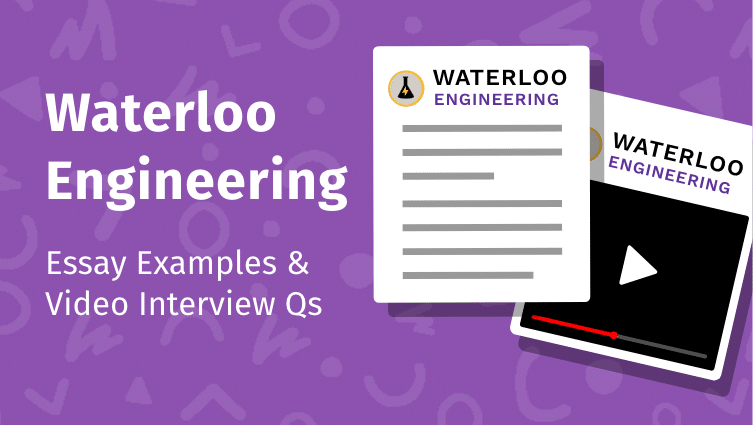
Application Prep
Waterloo Engineering Interview Questions & AIF Examples 2023/2024
If you are looking for Waterloo Engineering essay examples, video interview questions, and general guidance on the Admissions Information Form… Read more
Waterloo Engineering AIF Deadline
You must apply online and pay your fees through the OUAC website by February 1, 2023. Once you’ve done that, you should submit your AIF within 3 weeks.
The final Waterloo Engineering AIF deadline is February 17, 2023.
Check out Waterloo’s Engineering website for additional deadline information.
Waterloo Engineering AIF Essays
When filling out your Waterloo AIF, you’ll have to write a few essays.
While some essays are required and others are listed as optional, we highly recommend that you complete ALL essays in the AIF, even if they’re optional.
Why? Well, all the questions are there for a reason, and if you don’t do an essay then the admissions committee could be missing out on some valuable information about you that will help you get accepted into the program.
Here are the essay questions that are required:
Part 1: About You – Part A, Questions 1 & Question 3
- Question 1: Reasons for choosing your program and Waterloo (required). In 900 characters or fewer, you’ll describe specific reasons the program is a good fit for you. Are there certain courses, faculty members, or resources that are appealing?
- Question 3: Extracurricular Activities – Additional Information (optional). In 600 characters or fewer, you’ll describe additional details about key extracurriculars. You want to show the admission committee the extent of your knowledge and passion.
Part 2: About You – Part B, Question 4
- Question 4: Additional Information (optional). A broad optional essay where you can explain any additional extenuating circumstances in a way that will help the admission committees still see you as a strong candidate.
Part 4: Engineering, Question 1, Question 2, and Question 3
- Question 1: Engineering Interests and Goals (required). In 900 characters or fewer, discuss why you’re interested in the specific program you’re applying to, specifically in relation to your prior knowledge and career goals.
- Question 2: More About Your Goals (required). Here, you’ll focus on what you want to accomplish and learn during your time in Waterloo Engineering.
- Question 3: Programming Knowledge (required for software engineering, optional for other applicants). Software engineer applicants should demonstrate that you have experience in developing modular programs. All applicants with programming experience should describe this knowledge.
Waterloo AIF Example
Here’s an example of how to answer AIF Section 1, Question 1: “Tell us about your education goals, your interest in your chosen program(s), and reasons for choosing to apply to the University of Waterloo (maximum 900 characters).”
REMEMBER: This is an EXAMPLE ONLY and is NOT meant for you to copy. Why? First and foremost, this is plagiarism and is a serious offense. Plagiarizing these essays will result in immediate disqualification from the admissions process. This can be easily detected using technology and application reviewers are usually trained and/or able to spot when an application isn’t original and does not align with an applicant’s background, personality, values, etc.

This example follows our Deductive Communication Approach™, which uses a ‘top-down’ structure to help you articulate your ideas in a straightforward, logical, and memorable way. Want to learn other strategies to help you communicate your interests, skills, and experiences more effectively? Connect with a coach now.
Check out examples for each section of the AIF and learn how to put the Deductive Approach into action! Read our Waterloo Engineering App Guide for templates, examples, prep tips, and much more.
How to Get Into Waterloo Engineering – AIF Evaluation
“How can I get into Waterloo Engineering?! It’s such a competitive program!” We hear this ALL the time from students.
Although it might seem like getting into this top-tier is almost impossible, understanding exactly what exactly the admissions committee is looking for can help you create the best application possible.
You also have to remember that Waterloo Engineering gets thousands of applications every year. Because of this, you need to make the extra effort to make sure your AIF and interview answers are memorable, unique, and authentic.
You also need to show who you are by giving as much personal insight as possible. Talk about your experiences, your goals, lessons you’ve learned along the way, and what makes you, you.
Here’s some information on how the Waterloo Engineering AIF is evaluated so you can increase your chances of getting in.
The AIF is scored out of 5 points and is one of the 4 factors of consideration that contribute to your overall candidacy (read the section above about how you entire app is scored).
The minimum score is 0.5 (scores of 0 are reserved for folks who don’t submit).
The average Waterloo Engineering AIF score is 2.9/5. This shows how rigorously they evaluate the AIF. See more about scores in the bar graph below:
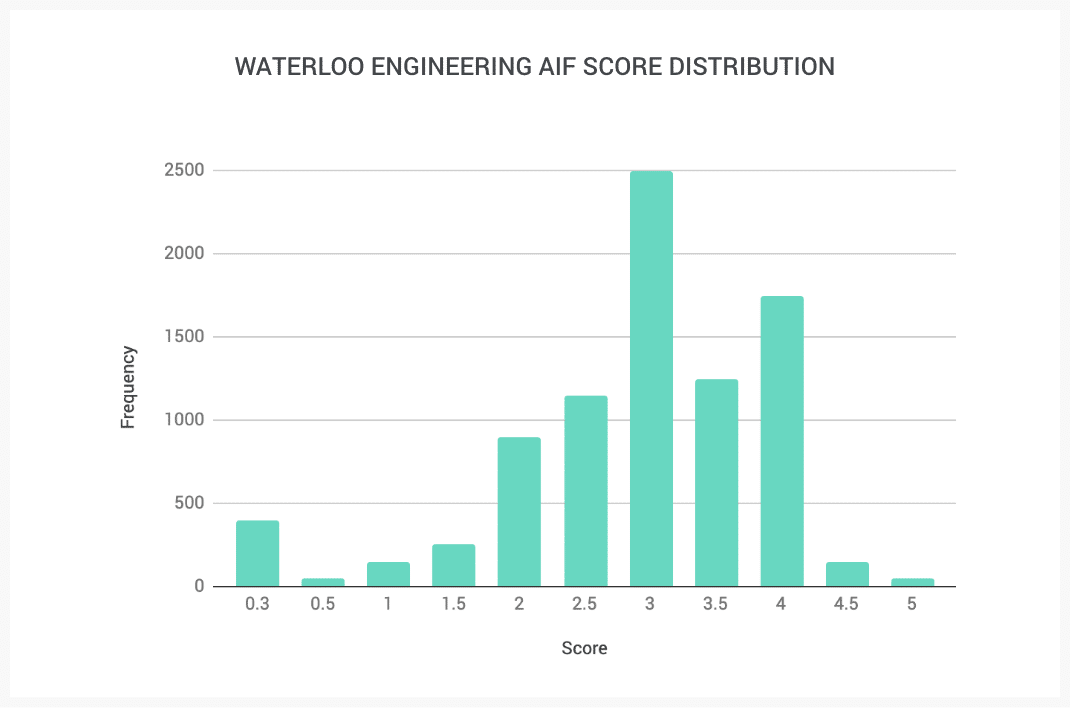
COACH’S TIP: To score higher on your AIF than other applicants, your essays need to be unique, authentic, and memorable. This can be especially tough when the admissions committee reads thousands of AIFs every year.
To help you stand out and increase your chances of admissions success, we’ve developed the Deductive Communication Approach™, an effective communication method that lets you communicate your skills, interests, and experiences in an interesting and compelling way. Learn more about it here.
Still worried about your AIF score?
You can learn how to get a 4 or a 5 by working 1-on-1 with a Youth Coach. We’ll give you access to successful tips and strategies for maximizing your AIF score.
Applicants who have used our services have over a 90% acceptance rate!
You Might Also Like
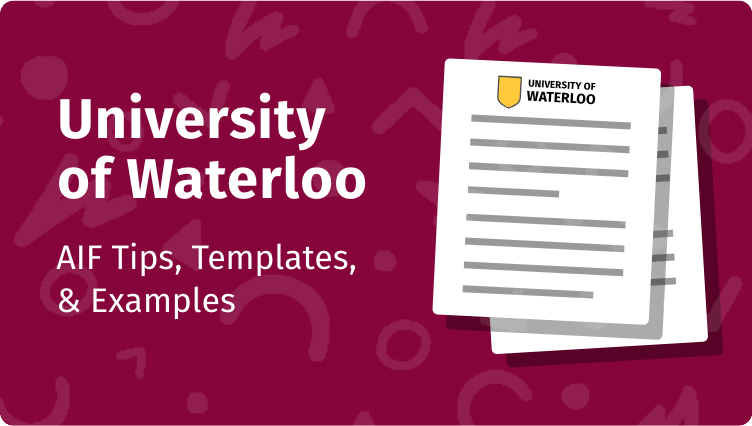
Application Prep
University of Waterloo: AIF Tips, Questions, & Examples 2023/2024
If you’re looking for Waterloo Applicant Information Form (AIF) questions, examples, and prep tips, then you’ve come to the right… Read more
Waterloo Quest
To fill out your AIF, you’ll need to have a QUEST account.
A few days after you apply through the Ontario Universities’ Application Centre (OUAC), you’ll get instructions on how to create a QUEST account. In that email, you will get a Waterloo student number.
Go to the registration page and sign up. Enter your information and your student number using Waterloo’s WATIAM system.
Once you register in WATIAM, you’ll get another email asking you to sign up as a new user. This is the process of creating a Waterloo ID to use to login to QUEST.
Then, you’ll get another email confirming your registration and your Waterloo ID (which looks like a Waterloo email address), Then you can finally login to QUEST and complete your AIF.
For Waterloo applications, there are actually three systems you will be concerned about: WATIAM, QUEST, and the external video interview platform.
- WATIAM is the system to manage Waterloo IDs, which you’ll need for QUEST
- QUEST is where you complete your AIF
- The external video interview platform
You’ll get emails explaining the steps for each system.
Waterloo Engineering Interview
The Waterloo engineering video interview is technically optional, but we HIGHLY recommend completing it as it counts for 3 points in your overall application.
The interview is done on a separate, third-party website.
You’ll get an email from the video interview platform asking you to check in.
First you’ll do audio/visual tests, then you can do practice questions to get a hang of the system. Up to this point, you can leave and come back.
REMEMBER: Once you start the actual interview, you cannot leave in between questions.
Here’s a quick snapshot of what to expect for your video interview:
- There are a total of 2 questions.
- The interview takes 30-60 minutes to complete the entire assessment process.
- Starts with a Welcome video that you must watch, and then you Register (add name, photo, and email address), then test your camera, microphone, and browser.
- You get 2 practice questions so you can get more familiar with the platform.
- 1 video question, with 30-60 seconds of prep time and then 60-90 seconds to give your final answer
- 1 written OR video question. For the written question, you’ll have 10 minutes to answer.
For a huge archive of past questions, answer templates, and sample video responses, sign up for our 1-on-1 Youth Coaching services today and check out this essential free resource!
Waterloo Engineering Interview Questions
Question 1 is always going to be about yourself.
Common themes include:
- Your educational goals
- Your career goals
- Any challenges/problems you’ve faced and overcome
- …get the whole list and a detailed breakdown by connecting with a coach
Question 2 may be about yourself, a problem-solving question, or a surprising curveball.
For this question, make sure you have a pen and paper, so you’re ready to jot down notes.
Common questions include:
- A position question. They will give you a statement, and ask if you agree or disagree. Always pick a side and then justify.
- A personal preference question. This is similar to the previous question, but your own experiences should drive your answers.
- A deductive reasoning question. They give you a problem to solve, and you must use deductive reasoning to come to a conclusion. Learn more about answering problem-based questions here.
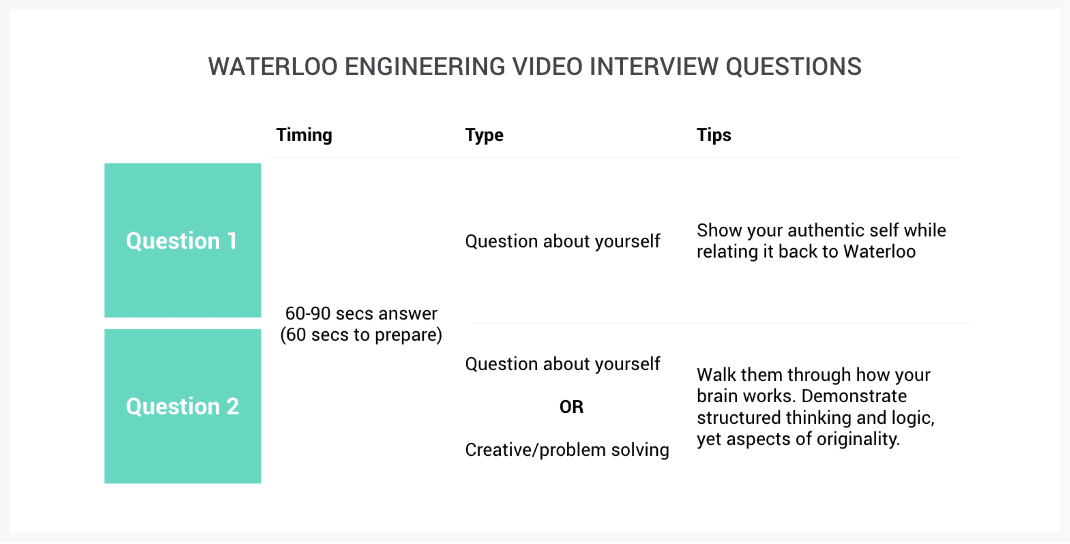
Here’s an example answer to the question: “Who is somebody you consider a role model, and why?”:
For a complete list of possible interview questions, as well as examples, prep tips, and more, check out our Waterloo Engineering App Prep Guide. We’ve also put together a comprehensive guide to help you prepare for personal and problem-based questions. Take a look at our Interview Prep Skills Guide for everything you need to know to ace your Waterloo Engineering interview. Trust us, you don’t want to miss it!
REMEMBER: With our 1-on-1 Youth Coaching services, you’ll have even more access to important information, including an archive of past questions, sample video responses, and answer templates. We’ll also prepare you for the interview by doing mock interviews, discussing interview strategies, and more.
You Might Also Like
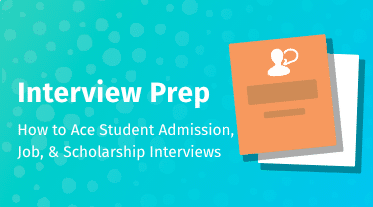
Skills Training
Interview Prep: How to Ace Student Admission, Job, and Scholarship Interviews
Even though you’ll do dozens of interviews during the course of your academic and professional career, you’ve probably had no… Read more
Waterloo Engineering Application Tips
Here are some of our top Waterloo Engineering application tips:
- Find unique ways to stand out. You can do this by being as specific as possible in all of your answers and using clear examples that show your interest and knowledge about the program, while highlighting why you’d be a perfect fit for the program. For example, don’t simply say you want to go to Waterloo because of the reputation and co-op, but discuss a specific course, resource, or component of a faculty’s research that interests you.
- Discuss your Engineering interest, exposure, and past experiences. Waterloo reinforces that this is very important to them.
- Emphasize the fact that you’re a vibrant and unique individual. Allow that to come through in your application. We’ve developed a unique approach that allows you to showcase these traits in a compelling and memorable way. Check out this approach here.
- Showcase the depth and breadth of your experiences. Too many students excel in academics but aren’t well-rounded in terms of extracurriculars and/or employment.
- Show the committee that you’re a driven and committed person, who has identified and executed audacious and authentic goals. Make sure your AIF reveals your commitment and initiative, and highlight how you have been involved in activities long-term and you didn’t just do something for Grade 12.
- Highlight your time management and problem-solving skills. This is very important because Waterloo Engineering requires a mastery of time management, especially if you are involved in extracurriculars or have a job, and they want to see that you can approach situations creatively. Engineering requires a flexible mind and creative approaches.
- Show that you’ll be a good student, but more so that you’ll be a good graduate. Since graduates working in the field are the AIF reviewers, they are looking for students who will go on to have good careers in the field. Show how you are employable for co-op and how you will be a successful engineer.
- Ensure you are portraying yourself as being highly self-aware and that you have a clear sense of purpose (and that Waterloo Engineering can help you fulfill this purpose).
We know that the application process can be super overwhelming and stressful. Just remember – you don’t have to go through this alone! Our Youth Coaches have helped hundreds of students get into Waterloo Engineering and get through this process. Connect with a coach for support and reach your full post-secondary potential!
Ace your Waterloo Eng application.
get a youth coach™Alex
Waterloo Eng
Expert & Youth
Coach™

University of Waterloo Engineering Admissions Process & Requirements
This section of the guide covers general information about admissions data, including acceptance rates and class sizes.
We’ll also discuss Waterloo’s adjustment factor used in the admissions process, as well as admission requirements, available scholarships, and more.
Waterloo Engineering Admission Requirements
Waterloo Engineering requirements state that applicants must have the following courses and grades before being officially admitted.
While each Waterloo Eng program (e.g. Biomedical Engineering, Electrical Engineering, Civil Engineering, etc.) has different requirements (check those out here), there are a few requirements that are the same regardless of the engineering program you’re applying to.
First, all students MUST have a minimum of 70% in all required Grade 12 courses:
| Mandatory Course (Grade 12) – Applies to all engineering programs | Minimum Mark |
| Advanced Functions (MHF4U) | 70% |
| Calculus and Vectors (MCV4U) | 70% |
| Chemistry (SCH4U) | 70% |
| Physics (SPH4U) | 70% |
| English (ENG4U) | 70% |
| One additional 4U/M course | 70% |
In terms of overall academic average requirements, the Waterloo Engineering cut-off is a minimum of 85% average for ALL engineering programs.
This is not openly stated by Waterloo Engineering, but in recent years, many admitted students have averages at least in the high 80s or low 90s. In the 2020-2022 application years, a competitive average was mid 90s. As you can see, the admission averages get more competitive every year.
For the course and grade requirements for each Waterloo Engineering program, visit this page. If you have questions about the requirements for the specific program you’re applying to, connect with a coach for support.
Number of Applications to Waterloo Engineering
The number of applications to Waterloo Engineering averages over 13,000 applications per year: 4,000 applications from international students and 9,000 from Canadians.
Looking at the data, applications to science and engineering programs have grown an annual average of 7%.
Have a look at the total application numbers below:
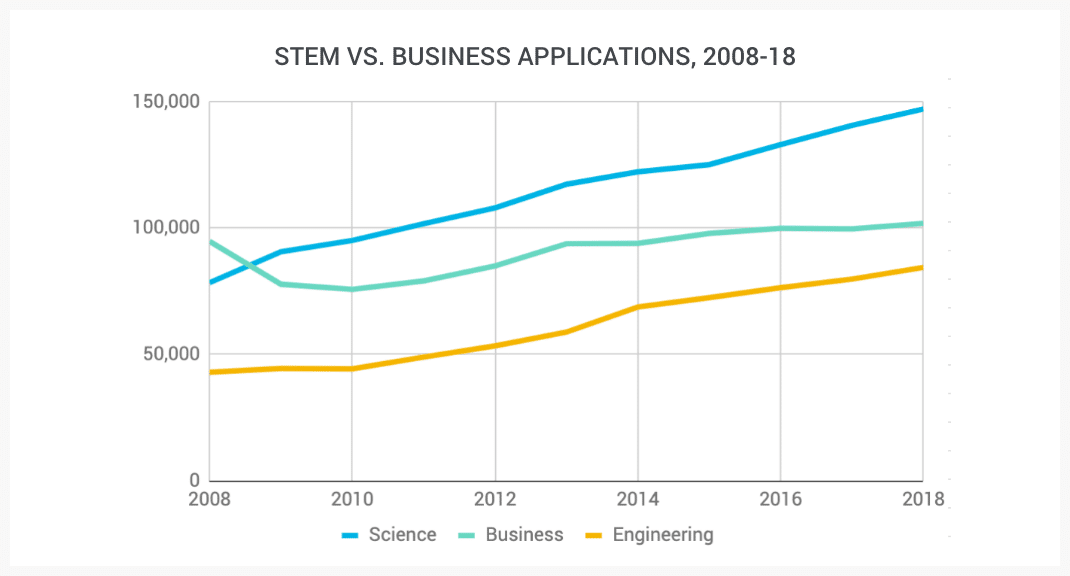
Since 2005, there has been a 40.9% increase in Engineering undergrad and 58.8% increase in graduate enrolment.
Although the engineering programs have received more applications, Waterloo Engineering Admission is particularly competitive.
Don’t let this scare you, though. With a competitive average and a standout application (AIF & interview), you can stand out from the crowd and drastically improve you chances of getting in. Check out our Waterloo Engineering App Prep Guide to learn more.
Waterloo Engineering Acceptance Rate
Although Waterloo doesn’t release exact acceptance rates, the Waterloo Engineering Acceptance rate ranges from around 5.25%-15.3% or higher.
Why is there such a range?
Waterloo accepts more students than there are spots, because they know not all students will accept. Waterloo uses historical data to predict the likelihood of acceptance from different types of students. These probabilities are secret and aren’t shared externally.
However, we’re able to gauge an approximate Waterloo Engineering acceptance rate by calculating statistics based on the number of spots there are in each program.
Across all engineering programs, international students, at worst, have a 5.25% chance of getting an offer. Domestic students have at worst a 15.3% chance of acceptance. Keep in mind that some engineering programs are more competitive than others, so this is only a general statistic.
Waterloo does not disclose the acceptance ratio by program, but does disclose how many spots exist in each program.
This information is based on 2018 and is subject to change.
A few additional notes:
The median average for all Engineering programs was in excess of 90%.
4 engineering programs gave out offers to applicants with an average of 100%.
Waterloo Engineering has given out offers to some students with averages less than 90% in all engineering programs, even the competitive Biomedical Engineering and Software Engineering programs.
Waterloo Engineering Enrollment / Class Size
Waterloo Engineering is Canada’s largest Engineering school, with over 10,500 students enrolled in Waterloo’s Faculty of Engineering in 2021 (undergraduate and graduate).
The Waterloo Engineering anticipated class size is 1,585 for first year students, with 210 spaces in Engineering being reserved for “visa students”.
If somehow those 210 spots aren’t filled, they are not reallocated to Canadian citizens or permanent residents.
However, the actual enrollment numbers are larger because they account for expected student attrition in first year.
In some cases the enrollment is less than the number of total possible spots.
See actual numbers from 2018:
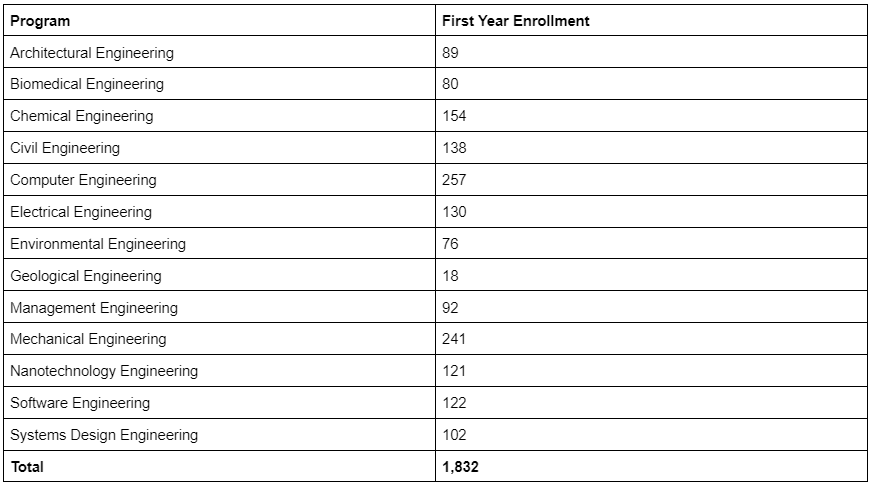
Here are the total number of undergraduates in each program in 2021:
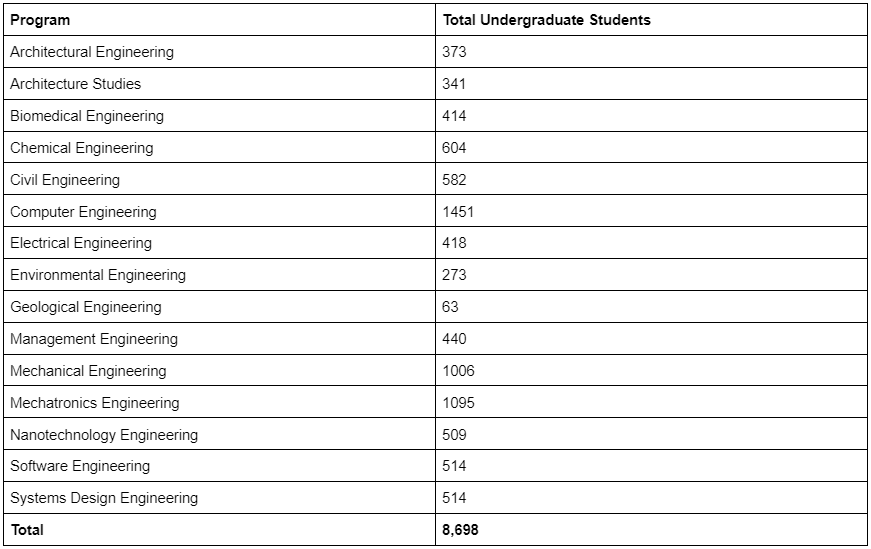
For other stats like this, visit this page.
Waterloo Engineering Admission Average
Over the years, Waterloo Engineering admissions averages have been going up, which means it’s becoming increasingly harder to get in.
See the table below:
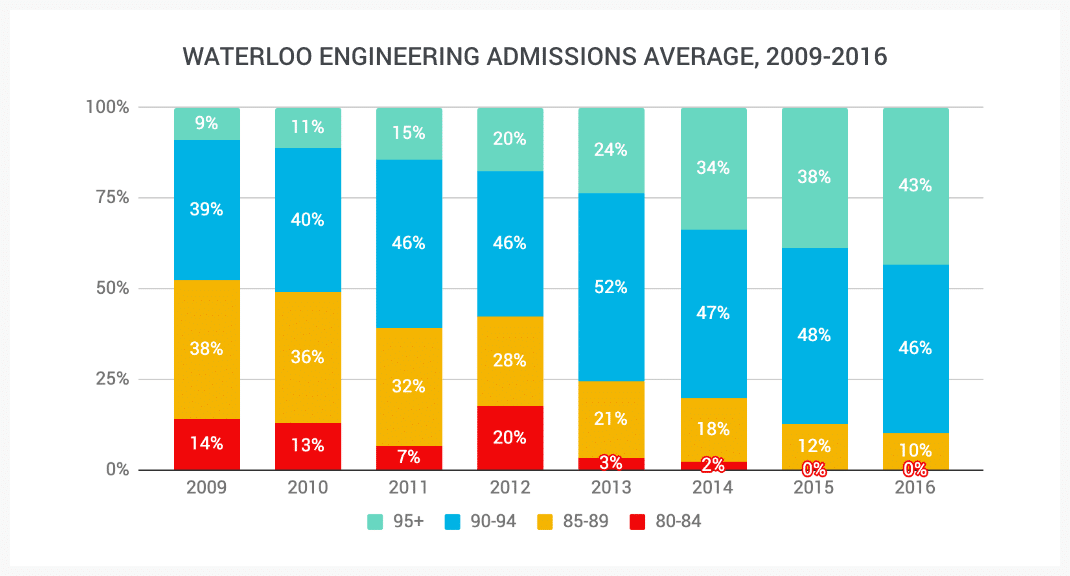
Note that the Waterloo Engineering admissions average depends on the specific program within Engineering you’re applying to (check out the admission averages for each engineering program here).
Here’s a list of competitive admission averages and your chances of receiving an offer based on your average for each Waterloo Eng program for Fall 2023:
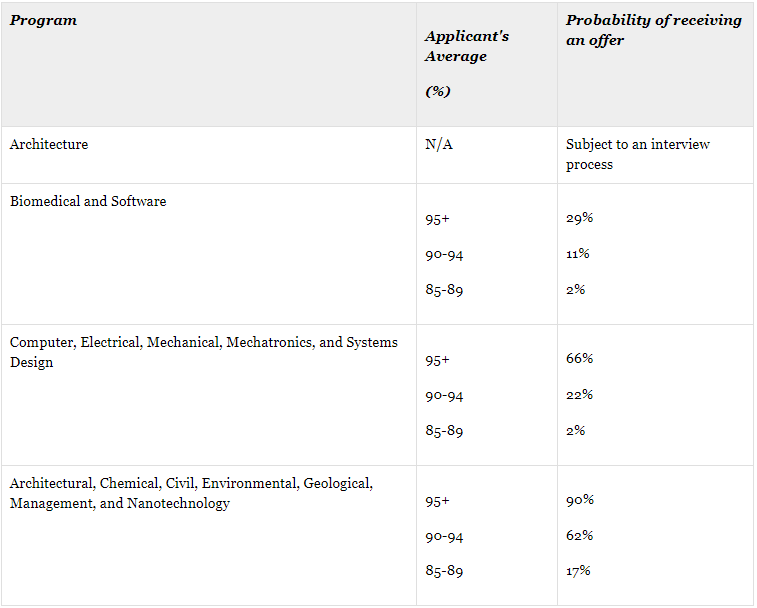
Statistically, the cutoff is 82% for 7 programs, and 85% for the rest, although there isn’t a hard cut off.
REMEMBER: A 100% average does NOT mean 100% probability of acceptance, not even for the less competitive Waterloo Engineering programs. Remember the application process evaluates candidates on more than simply grades.
Want to make your application more competitive beyond your grades? Connect with a coach to learn how.
Waterloo Engineering Early Admission
If your Grade 11 grades are exceptional, then you might want to consider Waterloo Engineering early admission.
You’ll be eligible for Waterloo Engineering early admission if you have already completed 5 of the Waterloo Engineering prerequisites, or you have extremely high grades in the Grade 11 equivalent of these subjects (e.g. 98%+).
A maximum of 25% of offers (usually much less than this) are handed out in February for early admissions, even though AIF scoring isn’t done until April.
You must apply BEFORE the deadlines for regular admission (February 1, 2023 for the application and February 17, 2023 for all required documents). Check this page for up-to-date deadlines for Waterloo University and this page for Waterloo Engineering more specifically.
For more information and guidance about how to approach your application and tips to increase your chances of admission, check out our 1-on-1 Youth Coaching services.
Waterloo Engineering Adjustment Factor
Waterloo uses an adjustment factor in their admissions process. The Waterloo Engineering Adjustment Factor accounts for the rigor and grade inflation of an applicant’s high school average.
What does this mean? This means, that if you come from a particularly rigorous school that grades more severely than average schools, Waterloo will positively adjust your overall grade percentage. Students from these schools are more likely to be accepted with slightly lower overall grade averages than applicants from non-adjusted schools.
Conversely, if you come from a school that historically gives out inflated grades, Waterloo will negatively adjust your overall grade percentage.
This creates a more level playing field, so Waterloo can more easily compare grade averages across candidates from many schools.
It’s important to note that over 90% of high schools have the same adjustment. This means that applicants from these schools will receive no positive or negative adjustment to their grade averages.
How does Waterloo do this?
For many years, Waterloo has been examining which high school students’ grades matched with the marks they receive in the engineering school, and which didn’t.
If students from School A historically got better grades in the engineering program than in high school, that meant School A was particularly rigorous. If students from School B historically got much worse grades in the engineering program, this indicated that their school had more grade inflation.
Overall, Waterloo uses the adjustment factor so they can admit students who are most likely to be well-prepared and succeed in their program. For more information about the adjustment factor check out this article from Global News.
Waterloo Engineering Entrance Scholarships
Waterloo offers numerous University-wide scholarships, most of which require no application and you’ll be automatically considered when you apply (there are a couple exceptions where you do need to apply).
All of these scholarships are based on academic and personal achievement. You will be evaluated using your top 6 grades including required courses for the Engineering program.
President’s Scholarships
All President’s Scholarships are open to any applicant who will be a full-time student for first-year degree studies at Waterloo. Applicants cannot have previously begun post-secondary studies.
For more information visit the President’s Scholarship Page.
| Scholarship | Amount Awarded | Admission Average of Awardees |
| President’s Scholarship of Distinction | $2,000 (+opportunity to receive $1,500 International Experience Award and/or $1,5000 Research Award) | 95%+ |
| President’s Scholarship | $2,000 (+opportunity to receive $1,500 International Experience Award and/or $1,5000 Research Award) | 90-94.9% |
| Merit Scholarship | $1,000 | 85-85.9% |
University of Waterloo Entrance Scholarships
There are many entrance scholarships, some specific to engineering, others open to any applicant. These also require no application. They are:
| Scholarship | Amount (# awarded) | Selection Criteria |
| Entrance Scholarship (general) | $1,000-$5,000 (several) | academic performance |
| International Student Entrance Scholarship (general) | $10,000 (several) | students who have a 90%+ average. |
| Entrance Scholarship (architecture) | $1,000-$2,500 (several) | academic performance, interview, and portfolio review. |
| Entrance Scholarships (engineering) | $10,000 (several) $8,000 (one) $1,000-$5,000 (several) | academic performance and AIF. |
| Entrance Scholarship for international students (engineering) | $10,000 (several) | full time international students in Architecture, Engineering, and Software Engineering |
| Other Entrance Scholarship (entrepreneurship) | $18,250 (one) | academic performance, AIF, demonstrated interest in entrepreneurship |
| Various Entrance Scholarships (software engineering) | $15,000 (one) $4,000 (several) | academic performance, AIF |
Learn more about Waterloo entrance scholarships here.
You Might Also Like
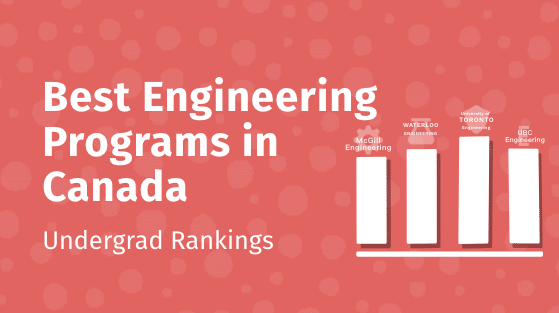
Rankings & Lists
Best Engineering Schools in Canada 2023/2024 (Undergraduate Programs)
Want to learn what the best universities in Canada for Engineering are? You’ve come to the right place. We know… Read more
Waterloo Engineering Programs
This section of the guide covers basic information about Waterloo’s engineering programs.
You will choose a program as your field of study (sometimes called a ‘Major’) when you apply to Waterloo Engineering, and all are direct entry.
There are 15 Waterloo Engineering Programs (keep reading to learn more about each of them):
- Architectural Engineering
- Architecture
- Biomedical Engineering
- Chemical Engineering
- Civil Engineering
- Computer Engineering
- Electrical Engineering
- Environmental Engineering
- Geological Engineering
- Management Engineering
- Mechanical Engineering
- Mechatronics Engineering
- Nanotechnology Engineering
- Software Engineering
- Systems Design Engineering
University of Waterloo – Architectural Engineering
The Architectural Engineering program is the newest and has limited enrollment of around 90. This program shouldn’t be confused with the Architecture program. Architectural Engineering is a mixture of mechanical, electrical, and mostly civil engineering, and is NOT as concerned with aesthetics as the Architecture program. Instead, it focuses on designing, renovating, and retrofitting flexible buildings. Co-op is available.
In the first year, you’ll take foundational courses like advanced chemistry, math, electrical, and mechanics. In the second and third year, courses become more specialized, with courses like AE 315 – Building Structural Systems.
Faculty have expertise in mechanical, civil, and electrical engineering, as well as architecture.
To be a competitive applicant, an admission average in the high 80s is required. Learn about other grade and course requirements for Architectural Engineering here.
Probability of being accepted for Fall 2023 by admission average:
| Average | Probability of Receiving an Offer |
| 95+ | 90% |
| 90-94 | 62% |
| 85-89 | 17% |
University of Waterloo – Architecture
The Architecture program is a 5-year, pre-professional program, which means you do not get a professional degree. There is a Canadian Architectural Certification Board accredited professional degree in architecture, but it is a masters: M.Arch. The Architecture program usually accepts 75 students a year.
The Architecture program covers construction techniques, building materials, cultural history, social, context, green architecture, and other related topics. This program is ideal for aesthetically-minded students who are interested in using creativity to design buildings.
In the fourth year, you’ll spend the fall at Waterloo’s studio in Rome, Italy. There is co-op in this program.
Unlike other engineering programs, for admission there is an in-person interview (vs. being admitted from grades alone), where you’ll show and discuss your portfolio. Even though grades matter for admission, the interview and portfolio are even more important.
The Architecture program has many faculty members, who come from backgrounds in fields such as architecture, civil engineering, urban design, bio-materials, and landscape design.
University of Waterloo – Biomedical Engineering
With only about 70 spots, the Biomedical Engineering program is arguably the toughest undergraduate program in Canada to get into, and is definitely one of the top 5.
You’ll learn about biomechanics, physics, chemistry, and design, with a focus on ways to better diagnose illnesses, treat health problems, and enhance people’s overall health. Co-op is available.
The first year consists of more general study of math, chemistry, and physics. The following years are fairly specialized with areas of focus ranging from the physics of medical imaging to sports engineering.
Given the small program size, the number of core faculty members is limited, but some faculty overlap with the Systems Design program.
To be a competitive applicant, an admission in the low to mid 90s is required. Learn about other grade and course requirements for Biomedical Engineering here.
Probability of being accepted for Fall 2023 by admission average:
| Grade | Probability of Acceptance |
| 95+ | 29% |
| 90-94 | 11% |
| 85-89 | 2% |
University of Waterloo – Chemical Engineering
The Chemical Engineering program at Waterloo is one of the largest programs of its type in Canada, and is one of the top 100 chemical engineering programs in the world. Yearly, there are 140 spots in the program.
In the Chemical Engineering program, you’ll develop expertise in chemistry and material sciences, as well as systems analysis skills in order to design, implement, and manage processes from beginning to end. Co-op is available.
In the first year, courses are almost entirely chemistry and math related. In the following years, you’ll take specialized chemical engineering courses, like Bioprocess Engineering and Industrial Ecology.
The program has over 40 contributing faculty members.
To be a competitive applicant, an admission average in the mid to high 80s is required. Learn about other grade and course requirements for Chemical Engineering here.
Probability of being accepted for Fall 2023 by admission average:
| Grade | Probability of Acceptance |
| 95+ | 90% |
| 90-94 | 62% |
| 85-89 | 17% |
University of Waterloo – Civil Engineering
The Civil Engineering program at Waterloo is one of the largest programs of its type in Canada, and is one of the top 100 civil engineering programs in the world. Yearly, there are 140 spots available.
In the Civil Engineering program, you’ll develop skills in designing and maintaining massive infrastructure, such as bridges, highways, airports, tunnels, dams, and pollution-control facilities. Co-op is available.
This is possibly the most flexible engineering program. Once you finish their foundational courses, you’ll choose a wide variety of technical electives in structural, transportation, geotechnical, and water/environmental engineering.
Given the program’s flexibility and many specific courses, nearly 100 faculty contribute to the program.
To be a competitive applicant, an admission average in the mid to high 80s is required. Learn about other grade and course requirements for Civil Engineering here.
Probability of being accepted for Fall 2023 by admission average:
| Grade | Probability of Acceptance |
| 95+ | 90% |
| 90-94 | 62% |
| 85-89 | 17% |
University of Waterloo – Computer Engineering
According to the Shanghai World University Rankings (2020) Waterloo has one of the top 50 programs in computer engineering.
Waterloo’s Computer Engineering program is the third largest combined electrical and computer engineering program in North America. Given that electrical and computer engineering are related programs, Waterloo reports that there are 360 spots a year in both programs combined.
You’ll take software engineering courses, mechanical courses, electrical courses, and others specific to the program. One particularly interesting course is Introduction to Quantum Mechanics.
The program features both labs and lectures, where you’ll learn about all aspects of computers from chips and wiring to software, networks, and communications. Co-op is available.
Given the program size of electrical and computer engineering, there are about 200 faculty members.
To be a competitive applicant, an admission average in high 80s or low 90s is required. Learn about other grade and course requirements for Computer Engineering here.
Probability of being accepted for Fall 2023 by admission average:
| Grade | Probability of Acceptance |
| 95+ | 66% |
| 90-94 | 22% |
| 85-89 | 2% |
University of Waterloo – Electrical Engineering
According to the Shanghai World University Rankings (2020) Waterloo has one of the top 75 programs in electrical engineering.
Waterloo’s Electrical Engineering program is the third largest combined electrical and computer engineering program in North America. Given that electrical and computer engineering are related programs, Waterloo reports that there are 360 spots a year in both programs combined.
You’ll learn about the fundamentals of electromagnetism, circuits, algorithms, and instrumentation. Co-op is available.
In the first semester, you’ll take math-focused courses, but in the second semester you can take very specialized engineering courses.
Given the program size of electrical and computer engineering, there are about 200 faculty members.
To be a competitive applicant, an average in the high 80s to low 90s is required. Learn about other grade and course requirements for Electrical Engineering here.
Probability of being accepted for Fall 2023 by admission average:
| Grade | Probability of Acceptance |
| 95+ | 66% |
| 90-94 | 22% |
| 85-89 | 2% |
You Might Also Like
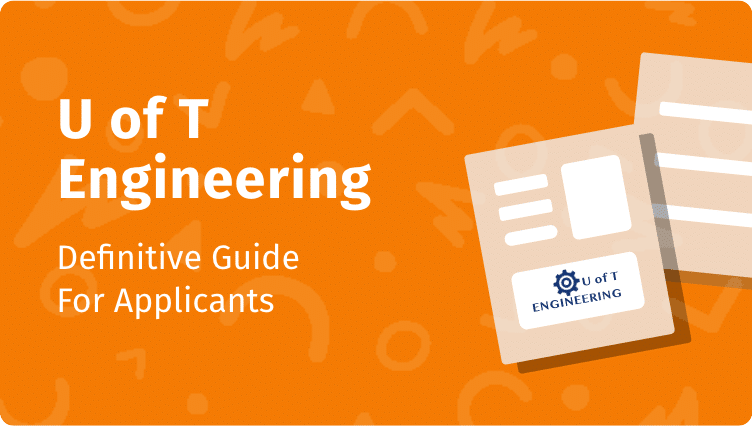
Program Guide
U of T Engineering: The Definitive Guide for Applicants (2024)
If you’re applying to the University of Toronto’s Engineering program in the Faculty of Applied Science and Engineering, or you’re… Read more
University of Waterloo – Environmental Engineering
This is Canada’s largest Environmental Engineering program. According to the Shanghai World University Rankings (2020) Waterloo has one of the top 100 programs in environmental engineering in the world. Yearly, there are 70 spots available.
You’ll learn how to pair the technical rigor of an engineering degree with scientific know-how and environmental insights. Co-op is available.
You’ll take courses in chemistry, biology, geology, as well as other disciplines.
Faculty comes from a diverse array of disciplines within engineering.
To be a competitive applicant, an admission average in the mid to high 80s is required. Learn about other grade and course requirements for Environmental Engineering here.
Probability of being accepted for Fall 2023 by admission average:
| Grade | Probability of Acceptance |
| 95+ | 90% |
| 90-94 | 62% |
| 85-89 | 17% |
University of Waterloo – Geological Engineering
Waterloo is home to one of two Geological engineering programs in Ontario. Yearly, there are 70 spots available.
You’ll learn to apply engineering principles to the natural materials and fluids found in the earth, including rocks, soils, groundwater, petroleum, and natural gas. Co-op is available.
Courses are a mixture of civil and environmental engineering, and there are extensive field courses, for example in Northern Ontario or Peru.
Faculty comes from various disciplines within Engineering.
To be a competitive applicant, an admission average in the mid to high 80s is required. Learn about other grade and course requirements for Geological Engineering here.
Probability of being accepted for Fall 2023 by admission average:
| Grade | Probability of Acceptance |
| 95+ | 90% |
| 90-94 | 62% |
| 85-89 | 17% |
University of Waterloo – Management Engineering
This is Canada’s first and only Management Engineering program. Yearly, there are 70 spots available.
You’ll develop expertise in data analytics, information systems, operations and supply chain management, and organizational behaviour. You’ll learn to analyze how organizations operate and apply engineering skills to increase their efficiency.
In your first year, you’ll take foundational courses in engineering and math-related subjects. By your second year, you’ll start courses about the application of engineering principles in business and management.
Faculty comes from various disciplines within Engineering.
To be a competitive applicant, an admission average in the mid to high 80s is required. Learn about other grade and course requirements for Management Engineering here.
Probability of being accepted for Fall 2023 by admission average:
| Grade | Probability of Acceptance |
| 95+ | 90% |
| 90-94 | 62% |
| 85-89 | 17% |
University of Waterloo – Mechanical Engineering
Waterloo’s Mechanical Engineering program is the largest single engineering program at Waterloo with 210 spots.
You’ll get a broad foundation in all aspects of mechanical design: mechanics, power, control, and manufacturing. Co-op is available.
In the first year, you’ll take mechanical engineering courses, as well as advanced math courses. In the following years, you can take some very cool courses like ME 321, “Kinematics and Dynamics of Machines; ME 435: “Industrial Metallurgy”; and ME 547, “Robot Manipulators: Kinematics, Dynamics, Control”.
Mechanical and Mechatronics share many faculty members, but working with Michael Collins and Richard Culham is particularly recommended.
To be a competitive applicant, a percentage in the mid 80s or low 90s is required. Learn about other grade and course requirements for Mechanical Engineering here.
Probability of being accepted for Fall 2023 by admission average:
| Grade | Probability of Acceptance |
| 95+ | 66% |
| 90-94 | 22% |
| 85-89 | 2% |
University of Waterloo – Mechatronics Engineering
Waterloo’s Mechatronics Engineering program is the first of its kind in Canada. According to the Shanghai World University Rankings (2020), this is one of the top 100 programs in the world. Yearly, there are 212 spots available.
You’ll learn principles from biology, chemistry, electronics, and quantum physics and use this foundation to make materials and machines smaller than the eye can see. Co-op is available
You’ll be based in the University’s $160-million Quantum-Nano Centre — a facility packed with state of the art nano-fabrication tools.
Given that this program is a very diverse, you will have many courses to choose from, such as Autonomous Mobile Robots, Introduction to Microprocessors, and Digital Logic.
Mechanical and Mechatronics share many faculty members but if you are really into mechatronics research, connect with Amir Khajepour.
To be a competitive applicant, an admission average in the high 80s to low 90s is required. Learn about other grade and course requirements for Mechatronics Engineering here.
Probability of being accepted for Fall 2023 by admission average:
| Grade | Probability of Acceptance |
| 95+ | 66% |
| 90-94 | 22% |
| 85-89 | 2% |
University of Waterloo – Nanotechnology Engineering
This is Canada’s only undergraduate Nanotechnology engineering program. Their first year enrollment is usually around 120 students.
This is a very broad program, which is great for people who like a bit of everything. You’ll learn mechanical engineering, electronics, control engineering, and computer science. Then, you’ll combine what you’ve learned from these different fields to develop sophisticated machines. Co-op is available.
You’ll have access to Waterloo’s WATiMake lab, giving you access to laser cutters, 3D printers, injection molding machines, and other tools to help you with prototypes and design projects.
From your first semester, you’ll focus specifically on nanotechnology with 3 nanotechnology-specific courses in your first semester alone.
Faculty is fairly close-knit with around 20 core faculty members.
To be a competitive applicant, an admission average in the mid to high 80s is required. Learn about other grade and course requirements for Nanotechnology Engineering here.
Probability of being accepted for Fall 2023 by admission average:
| Grade | Probability of Acceptance |
| 95+ | 70% |
| 90-94 | 45% |
| 85-89 | 10% |
University of Waterloo – Software Engineering
According to the Shanghai World University Rankings (2020), Waterloo is one of the best universities on the planet for Software Engineering. Despite high demand, yearly there are only 115 spots.
This is one of the top five hardest undergraduate programs in Canada to get into. If you want to take software engineering, your dream school is Waterloo.
You’ll analyze software architecture, apply algorithms, understand digital hardware systems, and design human/computer interfaces. Co-op is available.
You’ll have access to Waterloo’s WATiMake lab, giving you access to laser cutters, 3D printers, injection molding machines, and other tools to help you with prototypes and design projects.
The first year is math-focused and foundational. In following years, you’ll take more specialized courses, and Waterloo has some of the most impressive software engineering courses out there.
The program is very challenging because it is an interdisciplinary program administered by Engineering and Mathematics.
The program is collaboratively developed and administered by faculty in Computer Science and in Electrical and Computer Engineering. As such, it is accredited as both an engineering and a computer science undergraduate program.
As an interdisciplinary program, faculty for Software Engineering predominantly comes from the departments of Mathematics and Engineering.
To be a competitive applicant, an admission average in the low to mid 90s is required. Note the very low acceptance rates regardless of your grades. This is a very competitive program. Learn about other grade and course requirements for Software Engineering here.
If you want additional help to make you more competitive check out our 1-on-1 Youth Coaching services. Students love our services; we have an average 4.9 out of 5 star rating!
Probability of being accepted for Fall 2023 by admission average:
| Grade | Probability of Acceptance |
| 95+ | 29% |
| 90-94 | 11% |
| 85-89 | 2% |
University of Waterloo – Systems Design Engineering
Systems Design Engineering is designed for people who want an engineering degree, but also the flexibility to explore topics outside traditional engineering disciplines. Yearly, there are only 90 spots.
“Systems” here doesn’t mean only computer systems, but all systems. Throughout the program, you will look at systems as a whole and assess how one change will affect another element, using a variety of modelling, analysis, and design methods.
Even though civil engineering is very flexible and mechatronics gives you a little bit of everything, systems designs engineering offers the most flexibility in electives with about 200 options. Co-op is available.
Since you are taking courses from all disciplines, including some outside of engineering, your faculty can come from nearly any discipline. You’ll discover what topics you want to pursue and locate the right faculty for you based on those preferences.
To be a competitive applicant, an admission average in the high 80s to low 90s is required. Learn about other grade and course requirements for Systems Design Engineering here.
Probability of being accepted for Fall 2023 by admission average:
| Grade | Probability of Acceptance |
| 95+ | 66% |
| 90-94 | 22% |
| 85-89 | 2% |
Need help figuring out which Waterloo Engineering program is right for you? Connect with a coach for support.
Find the mentor you’ve been looking for.
get a youth coach™
About the Waterloo Engineering Program
This section of the guide covers the most important information about the Waterloo Engineering program, tuition costs, student demographics, rankings, and co-op opportunities.
Waterloo Engineering Society & Student Clubs
Waterloo University is home to the excellent Waterloo Engineering Society (ENGSOC). Each term, the society organizes 50+ academic and non-academic events to promote positive undergraduate experiences.
The Waterloo Engineering Society offers academic, professional, and social support for students. They also provide a myriad of other services, like student and faculty awards and resume support.
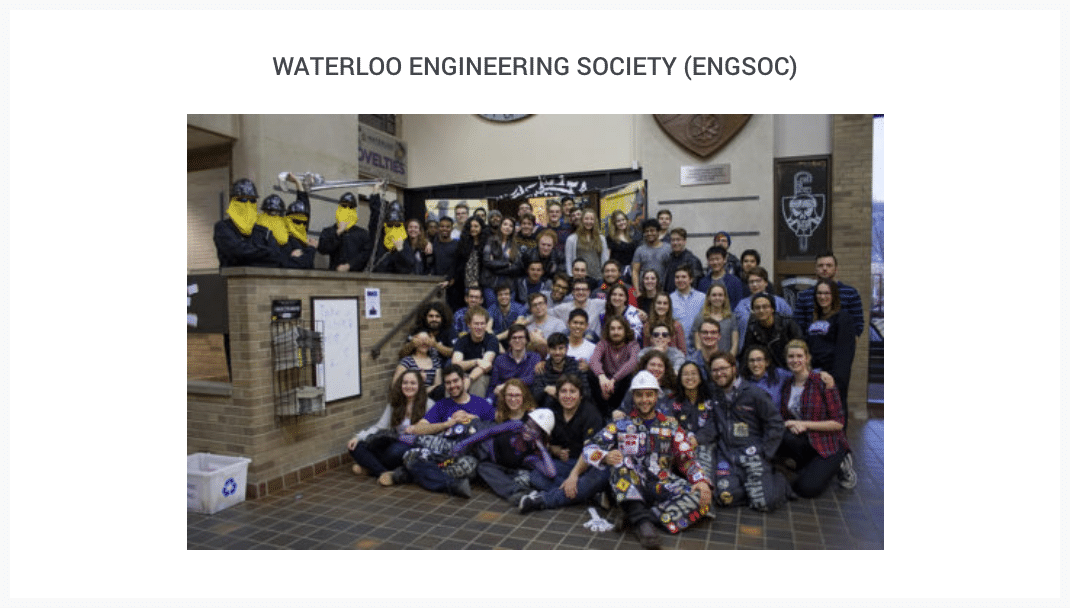
There are also plenty of other opportunities for co-curricular activities and getting involved, like the Women in Engineering (WIE), as well as many other athletics, design teams, and other opportunities to get involved.
Waterloo Engineering Alumni
Across all programs, Waterloo Engineering Alumni hold 22 Orders of Canada. In 2019, 11 Waterloo graduates were listed as part of Forbes 30 under 30, which features people from the U.S. and Canada across 20 categories.
Some notable alumni include Rasmus Lerdorf, Creator of PHP; Parker Mitchell, Co-Founder of Engineers Without Borders; and George Roter, Co-CEO of Engineers Without Borders.
Another notable alumnus of Waterloo Engineering is Mike Lazaridis, Co-Founder of Research in Motion (RIM), now BlackBerry Limited.

Lazaridis enrolled in the Electrical Engineering program at the University of Waterloo. However, a mere two months before graduating, he dropped out when General Motors awarded him a contract for a network computer control display system. Waterloo awarded him an honorary degree in 2000. He is also a former chancellor of the University of Waterloo.
For nearly three decades, Lazaridis worked for BlackBerry in positions such as Co-Chairman and Co-CEO. He was also Chair of the Innovation Committee and Board Vice Chair from 2012-2013.
In addition, he founded the Perimeter Institute for Theoretical Physics, the Institute for Quantum Computing at Waterloo University, and co-founded Quantum Valley Investments.
As of 2011, he had an estimated net worth of US $800 million, and according to Forbes was the 17th wealthiest Canadian and 651st wealthiest person in the world.
That’s definitely changed with the downfall of BlackBerry, but he’s still very rich.
In 2015, he pledged $20-million to Wilfred Laurier University (down the street from Waterloo), for a new technology-focused management institute at the business school.
They renamed the school The Lazaridis School of Business & Economics.
Another notable person who has a link to Waterloo is Chris Hadfield, an astronaut. Notably, he was the first Canadian to walk in space.
He has also been on two Space Shuttle missions, spent a total of 166 days in space, and was the commander of the International Space Station.
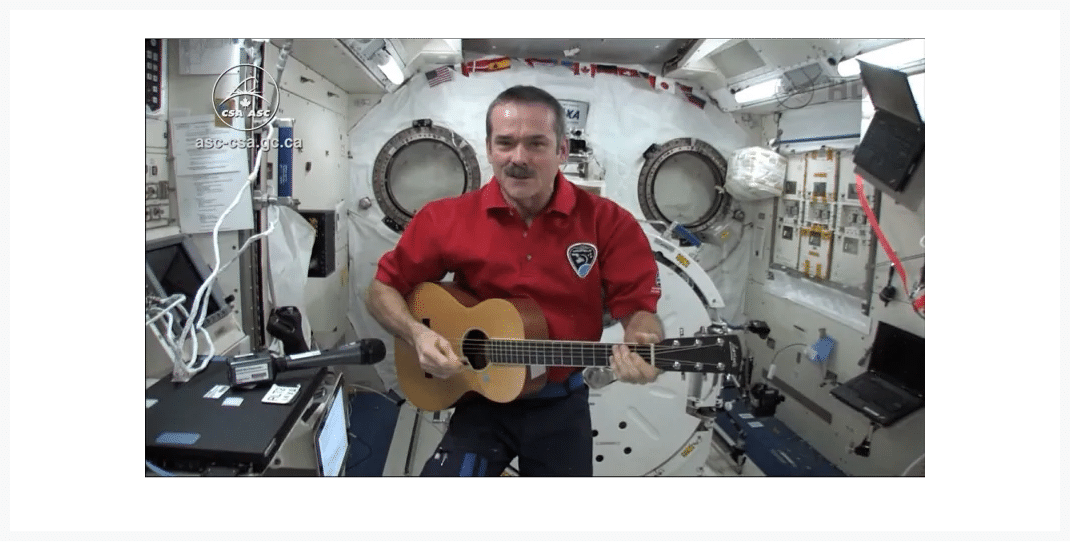
Hadfield studied at Waterloo as an NSERC postgraduate in the Faculty of Engineering and researched aircraft fuel pump design. In 2014, he joined the faculty for three years as part of the Faculties of Science, Environment and Applied Health Sciences.
Waterloo Engineering Exchange / Study Abroad
Waterloo Engineering has an international exchange program where engineering students participate in an academic or co-op exchange.
This is not to be confused with Waterloo’s study abroad program, where you pay the host school. In the exchange program, you pay Waterloo tuition while studying at another institution.
For study abroad opportunities, students usually go for an entire term. Waterloo has partner institutions in 30 countries and 81 institutions. The map below shows where these institutions are located.
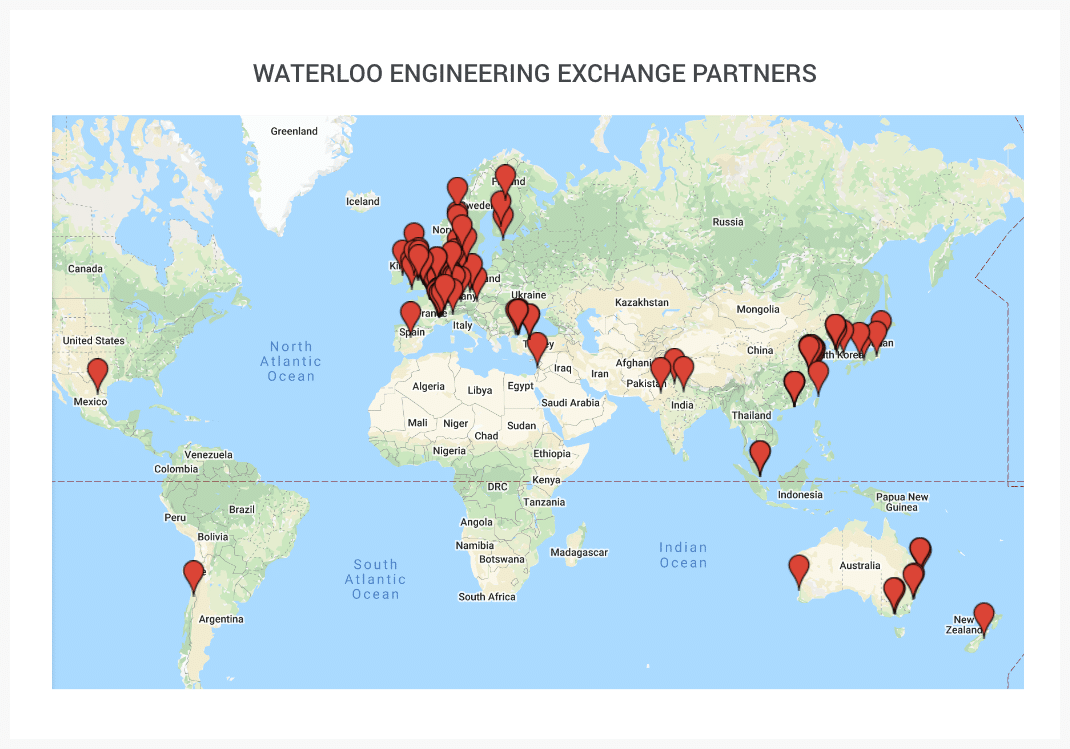
For more information about studying abroad, go to Waterloo Engineering’s study abroad website.
Waterloo Engineering Tuition
For the 2021-2022 academic year, Waterloo Engineering tuition was as follows:
| Student type | Annual Tuition + Incidental Fees | Books |
| Domestic | $17,100 ($10,900 for Architecture and $16,850 for Architectural Engineering) | ~$2,370 ($4,225 for Architecture) |
| International | $61,300 ($59,700 for Architecture and $54,600 for Architectural Engineering) | ~$2,370 ($4,225 for Architecture) |
The estimated total costs for an 8-month school year for an Engineering student are:
- Domestic: $30,677-$35,388 ($24,538-$26,138 for Architecture)
- International: $53,932-$60,214 ($57,036-$58,636 for Architecture)
For more information on first-year tuition fees and other costs, visit this page.
Waterloo Engineering Ranking
Waterloo Engineering is an excellent program and has been ranked accordingly.
These are some of the program’s previous accolades:
- 58th Best Global Universities for Engineering (US News)
- Best Engineering Program Reputation in Canada (MacLean’s)
- 89th best Engineering Program in the World (Times Higher Education)
- A top 50 universities in the world for Computer Engineering (Shanghai World University Rankings 2020)
- A top 100 universities in the world for Electrical Engineering (QS World University Rankings)
- A top 100 universities in the world for Chemical Engineering (QS World University Rankings)
- 46th best Engineering & Technology program in the world (Shanghai World University Rankings 2019)
If you’re interested in Waterloo Engineering, you might also be interested in the top-ranked programs at the University of Toronto and the University of British Columbia, which are often ranked ahead of Waterloo’s program. Learn more about these programs in our Best Engineering Schools in Canada Guide.
Waterloo Engineering Co-op
Waterloo’s Co-operative (Co-op) education program is one of its biggest claims to fame.
According to the university, the Waterloo Engineering Co-op is the largest co-op program in the world, with access to 6,900 employers. In fact, Waterloo Engineering alone has more co-op students than any other institution worldwide!
For all engineering students, co-op is mandatory. However, the term and duration differs by program (you can gain up to 2 years of real world experience).
As a Waterloo Engineering student, you will be automatically entered into the co-op program.
There are some serious advantages to the Waterloo Engineering co-op program.
This co-op program is significantly responsible for the fact that 92% of Waterloo students seeking employment are employed within six months of graduating, since they already have significant, relevant work experience. You will also be required to take professional development courses as a part of the co-op program, making you an even stronger applicant and young professional when you graduate.
Most participants forge fantastic connections during this time. In fact, 92% receive the highest rating of “very good” to “outstanding” ratings by co-op employers.
Also, during the co-op program, engineering students earn over $17,000 per term on average, over 6 work terms. (Note: some programs have different durations, so this is just an average).
The application process is fairly simple. Students apply for co-op jobs via WaterlooWorks, which is an online site run through Co-operative Education & Career Action (CECA). You upload your resume on WaterlooWorks and from there apply directly to co-op jobs.
Students can also find their own jobs outside of WaterlooWorks and can apply to have them count for a co-op credit.
Co-op in each engineering program works a little differently. More information follows about co-op in specific programs.
For architecture, you start co-op in the winter term of your second year.
For Architectural Engineering, Environmental Engineering, Geological Engineering and Systems Design Engineering, your first work term will begin in January of your first year. This is called stream 4.
For Biomedical Engineering, Civil Engineering, Management Engineering, Nanotechnology Engineering, Software Engineering, your first work term will begin in May of your first year. This is called stream 8.
For Chemical Engineering, Computer Engineering, Electrical Engineering, Mechanical Engineering, Mechatronics Engineering, you will start either January or May of your first year. You will be assigned a term in June prior to first year (stream 4 or 8).
Waterloo Engineering Professors
Waterloo Engineering is home to so many accomplished professors. What follows is a small glimpse into a few of the many brilliant Waterloo Engineering professors.
Hassan Askari‘s research focuses on developing new technologies to make autonomous driving a reality. Specifically, he’s worked on new sensing methods and measurement techniques to address tire forces. On his bio on the Waterloo website, he describes his research like this: “using the new technology of triboelectric nanogenerators, I designed and fabricated five different types of flexible nanogenerators, with the potential of self-powered sensing for tire-condition monitoring systems (TCMS).”
Krzysztof Czarnecki has also worked on issues regarding autonomous driving, but approaches it from the software side. He has published about DevOps-style processes with considerations for functions based on machine learning, and reviewed future research opportunities for software engineering for automated vehicles.
Linda Nazar is an expert in rechargeable batteries. Her lab focuses on research about electrochemical testing, electrode design for energy storage devices, complex material synthesis, and other related topics.
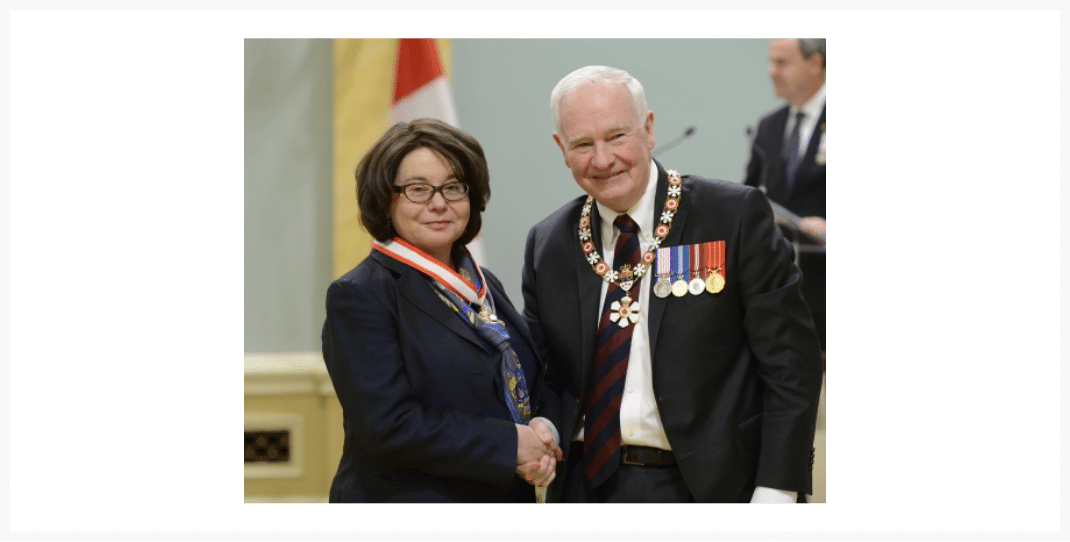
Nandita Basu engages in interdisciplinary work with economists, ecologists, and social scientists to explore anthropogenic effects on water quality and quantity and create new solutions for sustainable water management.
Fakhri Karray holds the Loblaws Research Chair in Artificial Intelligence. He is the Co-Director of the University of Waterloo Artificial Intelligence Institute. His research has applied applications in developing cognitive and self-aware robots, machines, and vehicles.
Xianguo Li -serves as the Canadian Society for Mechanical Engineering (CSME) Division Chair for the Advanced Energy Systems technical division. He also runs the Fuel Cell Green Energy Lab at Waterloo.
Michael Worswick is a Tier 1 Canada Research Chair in Light Weight Materials Under Extreme Deformation: Forming and Impact.
Tze Wei Yeow is a Canada Research Chair in Micro and Nanodevices. He works on developing mechanical machines that at the micron scale integrate with microelectronics.
Waterloo Engineering Gender Ratio
| Women in Engineering | # Women | % Women |
| Undergraduate Year One Enrolment | 623 | 34% |
| All Undergraduate Students | 2,783 | 32% |
| Undergraduate Degrees Awarded | 458 | 31% |
Waterloo Engineering – Contacts
The Faculty and Staff at Waterloo Engineering are always there to help whenever you need it.
Here’s the contact information if you need to get in touch with someone:
Address: 200 University Avenue West, Waterloo, Ontario, Canada N2L 3G1
Engineering Admissions: enginfo@uwaterloo.ca
Telephone: 519-888-4885
Engineering Admissions: enginfo@uwaterloo.ca
Website: https://uwaterloo.ca/engineering/
Engineering School Comparisons
Waterloo is certainly a top-ranked and excellent program, but you might want to know more about how it compares to other engineering programs.
Waterloo Engineering vs. University of Toronto (U of T) Engineering
This is the big debate in engineering in Canada: Waterloo Engineering vs. University of Toronto Engineering. Both programs have their advantages.
U of T does not have mandatory co-op, but they do have an optional professional experience year (PYE) after third year for 12-16 months. The mean salary for this is quite a bit lower than the overall co-op salaries at Waterloo. At U of T the mean salary is around $50,000 for the whole term, although this varies by student and program. The mean salaries range from around $41,000 to $55,000. In comparison, Waterloo Engineering students can make upwards of $100,000 on their co-op work terms, with $60,000 being considered a lower amount.
A huge difference between Waterloo and U of T is that U of T has what they call Engineering Science or Track one. Waterloo doesn’t have the same choice as U of T when it comes to Engineering Science or Track one. Moreover, most Engineering programs at Waterloo are already specialized and therefore you won’t have a one year (track one) or two year (engineering science) foundational year(s). As previously mentioned, Mechatronics does provide good variety, but still a completely different structure than Engineering Science. Therefore, for those who know exactly what they want to get into, Waterloo is a logical fit, whereas people who know they want to go into Engineering, but really have no clue what career they want to explore, Track one at U of T might be a good starting point.
Another difference between the schools is that U of T is a huge school, in a busy city. Waterloo is smaller (although still large), but in a much smaller town, with the businesses in the region being very tech-focused. If software or computer engineering is your thing, then Waterloo provides some serious advantages. Otherwise, Toronto has pretty much every kind of engineering job you could want.
When it comes down to it, a common differentiator is that Waterloo is better for securing jobs after graduation, and U of T is the best place if research and academia is your focus. Therefore, even though I know you readers want a clear answer, the real answer is that it depends on many variables and either could be the best choice for you.
You Might Also Like
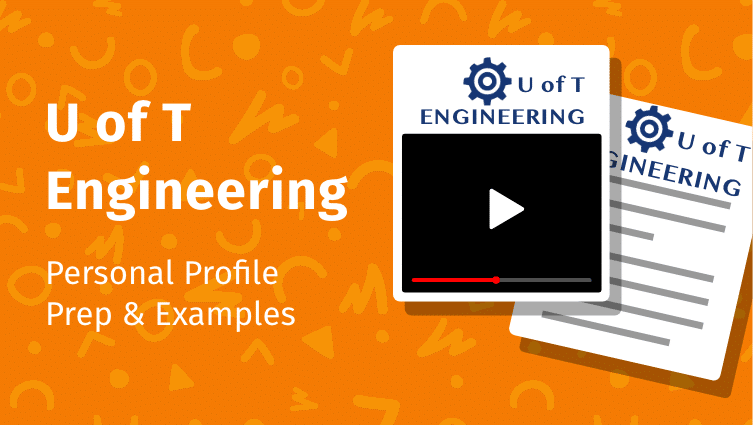
Application Prep
U of T Engineering: Personal Profile Questions Prep & Examples 2023/2024
If you are looking for guidance on the U of T Engineering Online Student Profile, including U of T Personal… Read more
Waterloo Engineering vs. McMaster Engineering
Both Waterloo Engineering and McMaster Engineering have strong programs, but how do they compare?
The most obvious difference between the two is that Waterloo Engineering offers many more programs than McMaster. Waterloo offers 15 undergraduate programs and McMaster offers 7 core academic department options.
Although this isn’t necessarily a bad thing, it can cross McMaster off of your list pretty quickly if you really want to study a program McMaster doesn’t have.
The most glaring difference is that McMaster is not globally ranked by most reports. As such, if you want your degree to carry as much weight as possible internationally, then Waterloo is significantly above McMaster. That isn’t to say McMaster’s Engineering program is well respected, but you definitely don’t have Bill Gates frequently applauding the graduates that come from McMaster.
Moreover, not surprising, Waterloo’s co-op is stronger, more robust, and yields better salaries and jobs. At McMaster, students do four month work terms, and can do up to four work terms whereas at Waterloo students typically enroll in five or more co-op terms.
On average, students made $7,000 less per work term at McMaster compared to Waterloo students. Extrapolate that for five work terms, and that’s a considerable chunk of change. As such, not only does Waterloo require more co-op time than McMaster, the salaries earned from each work term are larger. That being said, 98% of McMaster’s co-op student employers do end up hiring a co-op student full time, which is slightly higher than the hire-rate at Waterloo.
McMaster Engineering admission is almost as difficult, with a minimum average of 87 for most programs, however, it just doesn’t have the same competition as Waterloo. As previously stated, admission into Software Engineering and Biomedical Engineering at Waterloo is incredibly difficult, and no program at McMaster even comes close to comparing (except Health Sciences, which is not in the Engineering faculty, although there is an integrated course).
McMaster does have some cool engineering programs that Waterloo does not, such as Engineering & Society where you can pursue an optional minor in another program. At the end of the day though, Waterloo is more competitive, has a greater reputation, has more program options, has more experienced faculty, and its international reputation far exceeds McMaster.
You Might Also Like
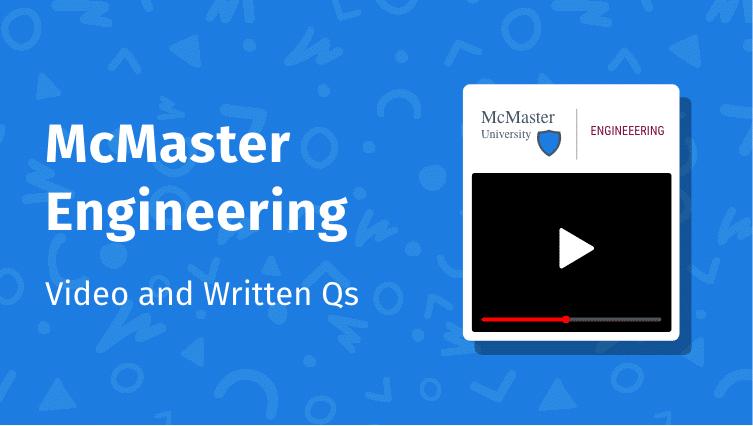
Application Prep
McMaster Engineering Supplementary Application & Video Interview Examples 2023/2024
If you are looking for guidance and examples for the McMaster Engineering timed written responses and video interview, then you’ve… Read more
You’ve Got a Dedicated Coach in Your Corner
For over a decade, we have worked with thousands of students to help them achieve more than they ever thought possible.
Our coaches have a strong success rate supporting students as they apply to Waterloo Engineering, among other top university programs.
Our 1-on-1 Youth Coaching fills that gap that most high schools miss. We can help you build self-awareness through probing questions and assessments, set bigger goals to elevate your extracurriculars and future career plans, and improve skills that matter on supplementary applications, such as interviewing, written communication, critical thinking, and creativity.
We use a coaching methodology, called ‘full student’ development, that’s been proven to increase your chances of admission to top-tier universities and obtaining competitive jobs/internships.
So, what are you waiting for? Fulfill your post-secondary potential with the mentorship and coaching you’ve always wanted! 🙂
IMPORTANT: Want to share information and/or images from this resource on your own website, blog, article, etc.? Please ensure you reference content of any kind published by Youthfully Inc., in whole or in part, using the following statement: (1) Our Organization (Youthfully Inc.); (2) The title of our content/resource; and (3) the URL to our webpage where the content was originally posted. For example: “Sourced from: Youthfully Inc., ‘Waterloo Engineering: The Definitive Guide for Applicants (2024)’, https://youthfully.com/waterloo-engineering-guide/.”
Not doing so is an infringement of copyright and is illegal. We spend significant time developing resources for students, so please take a few seconds to ensure they are referenced properly.
DISCLAIMER: While the information in this blog is considered to be true and correct at the date of publication, and although our team makes every attempt to ensure that the information is accurate and vetted by university staff, Youthfully is not in any way liable for the accuracy of any information printed and stored or in any way interpreted and used by a user.
Admission Process & Requirements
Program Options
- Architectural Engineering
- Architecture
- Biomedical Engineering
- Chemical Engineering
- Civil Engineering
- Computer Engineering
- Electrical Engineering
- Environmental Engineering
- Geological Engineering
- Management Engineering
- Mechanical Engineering
- Nanotechnology Engineering
- Software Engineering
- Systems Design Engineering
About the Program
Program Comparisons
Get 1-on-1 Support


